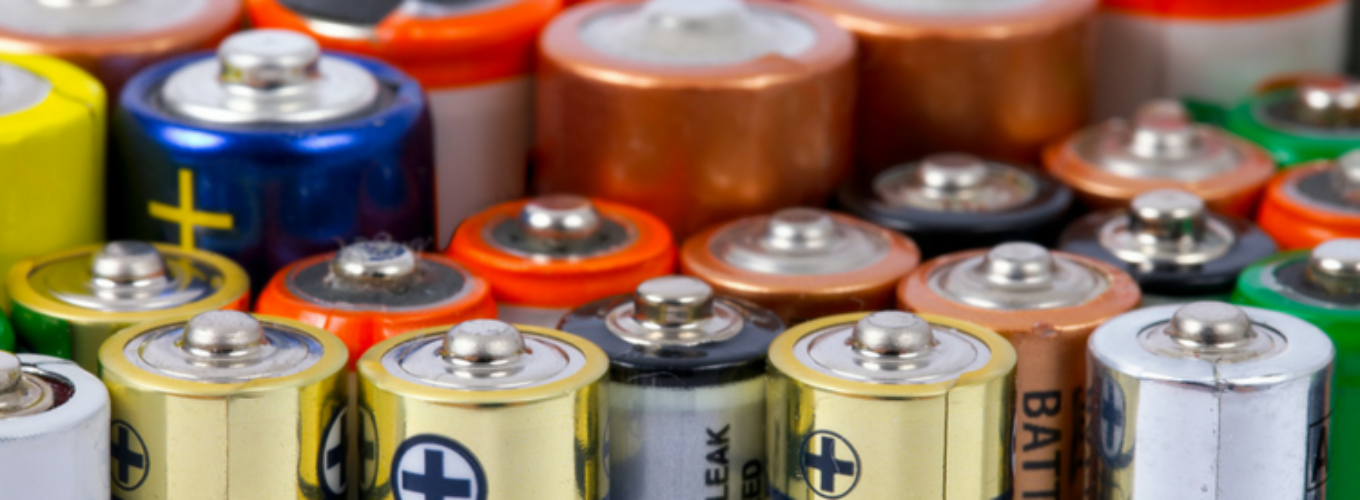In today’s world, we are constantly tapped into technology. Living during this time of rapid digital advancement means there are many tools that help make our lives easier, our workdays more efficient, and information easily accessible.
There are, of course, inherent growing pains connected to the age of the Internet and social media.
Many digital tools depend on either electricity or batteries to operate. Though some batteries are rechargeable, such as those in most cellular phones and laptops, there are still plenty of devices that use disposable batteries such as cars, computer keyboards, remotes, key fobs, headlamps, flashlights, and more.
Until a better alternative is invented, those products are dependent on batteries for a good reason. It would be horrible to be a backcountry skier and have your beacon die at the trailhead because you’d forgotten to plug it in for a battery boost the day before.
What’s most important is the environmental impact that’s caused by batteries that are thrown into the landfill and how you can help protect the earth through proper recycling alternatives.
Natural Resources
First of all, most batteries are made from lead, cadmium, zinc, lithium and mercury, which are all important resources and chemicals. If they are tossed into landfills, those resources are lost. When a battery is recycled, the materials can be recovered and used in new batteries or other creations.
Secondly, when a battery casing corrodes, the inner metals could penetrate the ground and cause soil or water pollution.
Science: Why a Battery Dies
In simple terms: a basic battery consists of four components: two atoms or compounds with a negative charge called anions and two with a positive charge called cations.
One cation and anion is bonded together on either end of the battery. When a conductor is connected to each end of the battery, the current flows creating power for your electronic. After a certain amount of time, the ions become so strongly bonded that the battery can’t transmit a current anymore, and dies.
Battery Recycling
There are many different types of batteries, which are recycled in a variety of ways. The good news: the majority of materials in all of these batteries are reclaimable and can be used to make new products.
– Lead Acid batteries—98 percent recycled—are broken apart at a hammer mill. The lead, heavy metals, and plastic all go into different recycling streams.
– Alkaline batteries (AAA, AA, C, D, 9V, etc.)—100 percent recycled—are recycled in a mechanical separation process. The zinc, manganese concentrate, steel, paper, plastic and brass are all put back into the market. Zinc-Carbon and Zinc-Air batteries are recycled in the same way.
– Lithium Ion batteries—100 percent recycled—are separated into metal and plastic components, which are reused to make new products.
– Nickel-Cadmium batteries—100 percent recycled—are separated into metal and plastic components. The metals are recycled through a metal reclamation process that’s high temperature.
– Nickel Metal Hydride batteries—100 percent recycled—have their plastics removed from the cell. The cells go through a drying process then are used for stainless steel or alloy manufacturing. Those materials are reusable.
– Lithium batteries are shredded or hammered apart. Contents are submerged in non-acidic water to neutralize them, and the clean scrap metal is sold to metal recyclers. Then the carbon is recovered and the lithium is converted to a fine white powder.
– Mercury batteries go through a temperature-controlled process to recover their heavy metals.
How Much Toxic Waste is Eliminated by Recycling Batteries?
According to the Everyday Green: “The Environmental Protection Agency (EPA) states that Americans in the U.S. throw away more than three billion batteries annually—nearly 180,000 tons—of which more than 86,000 tons are single-use alkaline batteries. Placed end to end, those dead alkaline batteries circle the world at least six times. Furthermore, close to 14,000 tons of rechargeable batteries are thrown away in the United States.”
According to the New Jersey WasteWise Business Network, recycling presents cost savings, due to:
– the avoided cost of disposal
– reductions in needed solid waste services
– and the potential revenue from sales of recyclables
So yes – you should be recycling those batteries from your flashlights, cell phones and other electronic devices. In fact, you can visit your local government website directory for battery recycling locations and important recycling information.
To find out more about the battery recycling process or to discover the role that General Kinematics’ machinery plays in the separation of recyclable components – contact us today!






